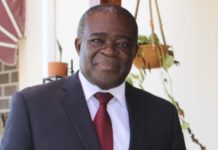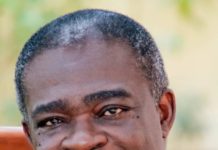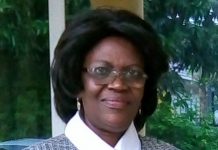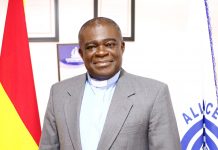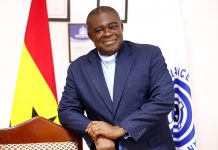|
Getting your Trinity Audio player ready...
|
Don’t over-politicise national issues — Atsu Ayee
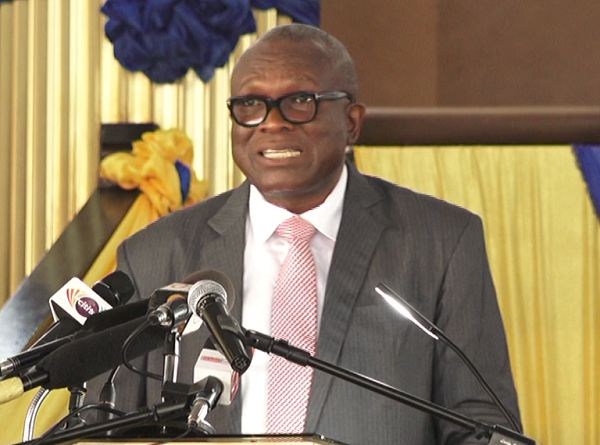
A Senior Research Fellow at the Institute for Democratic Governance (IDEG), Prof. Atsu Ayee, has observed that the over- politicisation of important national issues has made the country’s democracy weak.
He observed that it was not as though we had not made progress as a nation, but with the kind of happenings around us, we had a lot to do to bring out what our motto of: ‘One nation, One people’, stood for.
‘‘This situation has made our Parliament, as an institution, weak because currently there is not even a single independent member of Parliament. Everything in there is about the New Patriotic Party (NPP) and the National Democratic Congress (NDC). They only agree on issues that will benefit them as parliamentarians but on national issues, they are mostly divided,’’ Prof. Ayee emphasised.
Democracy
Speaking to the Daily Graphic, in an interview on the state of Ghana’s democracy – the extent to which national issues have been politicised, Prof. Ayee said politicisation had become the order of the day in Ghanaian politics because of the dominance of the two political parties, the NPP and the NDC.
He said Ghana was practising indirect democracy that was why the electorate had voted for some people to represent the citizenry in Parliament but the representatives were not living up to what they were supposed to do.
Prof. Ayee said the situation was not only affecting the development of the nation but had also brought division among the citizenry because at the moment we did not share a common vision as Ghanaians. ‘‘Now people are bitter because they think political parties are not good and have nothing to offer but their selfish interest to enable them to win power.’’
Prof. Ayee, who is a former Dean of the Department of Political Science, University of Ghana, called on Ghanaians to come together to help build the capacity of minority parties to make them stronger and a third force to reckon with.
‘‘Strengthening the minority parties will undoubtedly help break the chain of politicisation which has eaten into our politics,’’ he noted.
He said although Ghana was operating a multi-party system, the over- dependency of the citizenry on the NPP and the NDC had made the country a two-party state because the trend showed that we had no alternative as a people.
‘‘But we cannot have democracy without political parties. The parties are the main stream of democracy because democracy is a government based on representation, participation, majority hold and consensus. All over the world there are only few countries without political parties because they are operating a monarch system but
we are not, so we should work hard to make our democracy thrive,’’ he remarked.
Prof. Ayee noted that no democracy was perfect but some countries were doing well because of the way they addressed the imperfections, and urged Ghanaians to build on the successes and address challenges as they came.
Regulation of political parties
He argued that the political parties had not been regulated because they were not guided by the Directive Principles of State Policy, adding that these principles would give the political parties parameters to bring out political objectives such as economic, education, cultural and social.
‘‘These directive principles are missing in our body politic that is why we are divided as a people. As a political party, you cannot just campaign on a manifesto, even that, the manifesto must be based on the directive principles and this will create avenue for the citizenry to participate in every decision that would be taken,’’ Prof. Ayee explained.
Prof. Ayee was of the view that lack of regulation of political parties was as a result of the Electoral Commission (EC) not being able to carry out its mandate in that area. He observed that the commission had been saddled with a lot of internal elections such as the district level elections, constituency elections, etc, so it did not have enough time to put strict measures on political party activities.
Enforcement of laws
Prof. Ayee said; ‘‘there is a gap in the law regarding the enforcement of regulations on finances of political parties that is why candidates do not see the need to account to their parties how much is spent during a campaign.’’
He said Ghanaians must be encouraged to be actively involved in politics and demand accountability and transparency from the political parties, adding that the call should not be on ‘bread and butter’ issues but policies that would reflect on their lives and develop the nation as well.
Structure of EC
The structure of the EC, according to Prof. Ayee, had been made in a way that it did not have a division which solely regulated the activities of political parties; all activities were on the shoulders of the EC Chairperson, deputy chair for operations, corporate relations, etc.
‘‘I think it is high time we had a separate wing of the EC which will enforce political party activities because electoral procedures should be democratic,’’ he said.




